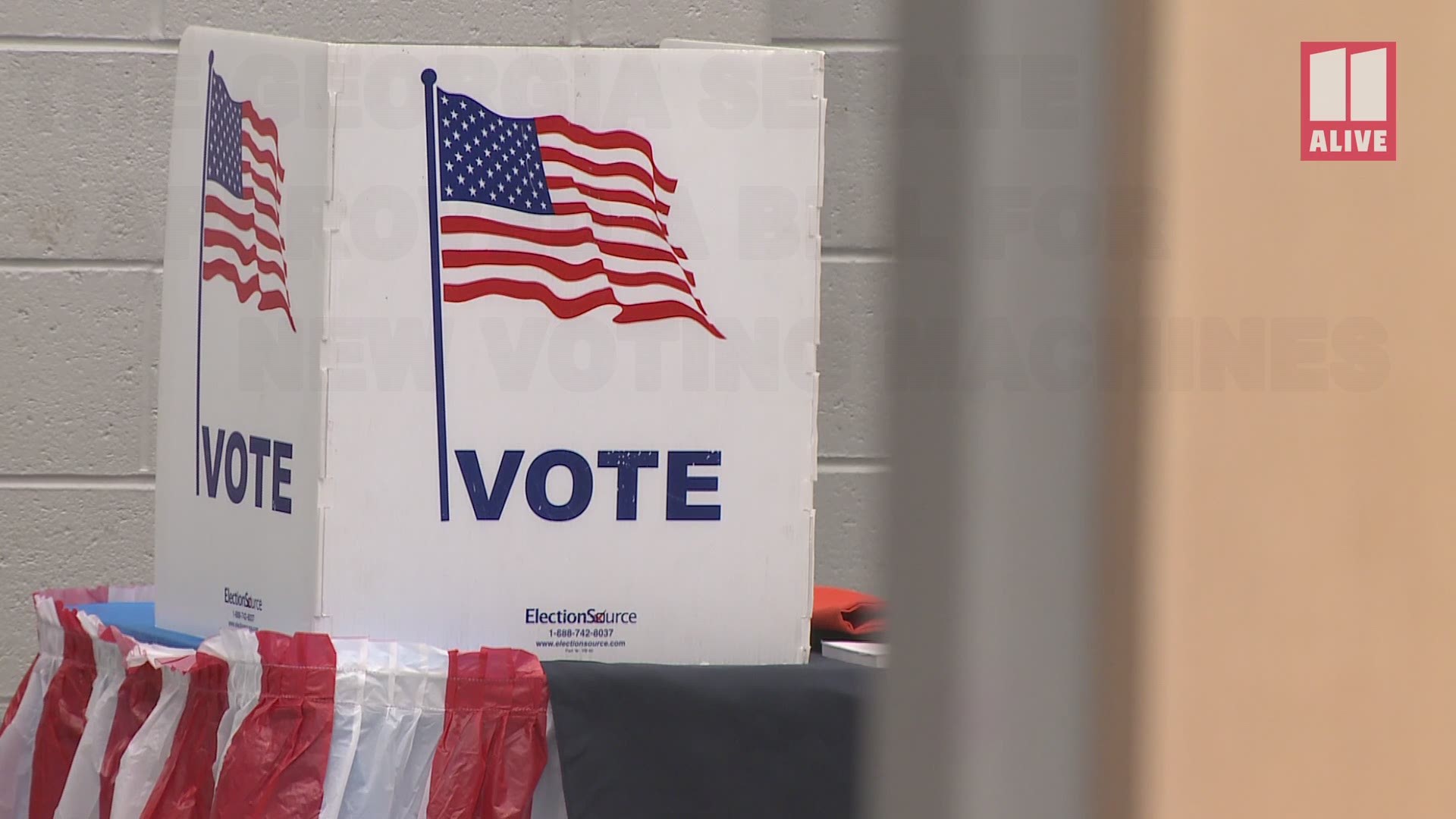ATLANTA (AP) — Georgia's highest court is mulling whether to reverse a lower court's dismissal of a lawsuit challenging the outcome of November's race for lieutenant governor in a case that focuses attention on the state's outdated voting machines.
The lawsuit says tens of thousands of votes were never recorded in the race and the contest was "so defective and marred by material irregularities" as to place the result in doubt. It contends an unexplained undervote in the race was likely caused by problems with the state's paperless touchscreen voting machines.
Republican Geoff Duncan beat Democrat Sarah Riggs Amico by 123,172 votes to become lieutenant governor. Amico is not a party to the lawsuit, which was filed in November by the Coalition for Good Governance, an election integrity advocacy organization; Smythe Duval, who ran for secretary of state as a Libertarian; and two Georgia voters. It was filed against Duncan and election officials.
Senior Superior Court Judge Adele Grubbs dismissed the lawsuit in January. The Georgia Supreme Court on Tuesday heard arguments in an appeal of that dismissal.
The Supreme Court justices asked some pointed questions of both sides in their effort to determine whether the lower court judge abused her discretion in dismissing the case.
Lawyer Bruce Brown argues in the appeal that the judge erred by not allowing discovery prior to trial.
"The result we're seeking is a fair trial, not to win that fair trial," Brown told the justices, arguing proper discovery is needed to determine whether the voting machines malfunctioned.
Generally, almost all voters vote for the race at the top of the ballot — in this case the governor's race — and then it drops slightly for down-ballot races, the appeal says. But in November, the drop in total votes recorded in the lieutenant governor's race compared to the governor's race was much bigger than normal, and other down-ballot races didn't experience a similar decline.
Based on historical voting patterns, the undercount in the lieutenant governor's race could be more than 127,000 votes in November's election, Brown argued.
Additionally, the undervote only appeared in votes reported cast on touchscreen voting machines, not those cast on paper absentee and provisional ballots, Brown argued. The paper ballots followed the normal pattern.
Cybersecurity experts have long warned that the touchscreen voting machines Georgia has used since 2002 are unreliable and vulnerable to hacking and provide no way to do an audit or confirm votes have been recorded correctly because there's no paper trail.
The lawsuit precedes a law passed this year providing for a new voting system in Georgia, but Brown has said while arguing a separate lawsuit that voting machines that fit the specifications in the new law also raise concerns.
Lawyer Ed Lindsey, representing Duncan, argued there are a number of logical explanations for the undervote, including the layout of the electronic ballot. He also said multiple tests were run before, during and after the November election to verify the integrity of the system.
As part of the discovery process, plaintiffs sought access to an electronic state database containing election data, as well as access to the internal memory of voting machines so their experts could do a forensic examination. Brown argued that a forensic examination was the only way to tell whether the undervote was caused by a programming defect.
The access the plaintiffs sought raised security concerns, and the secretary of state and county election officials provided an alternative way for the plaintiffs to get the information they sought but they rejected that offer, argued lawyer Josh Belinfante, representing Secretary of State Brad Raffensperger, who submitted a brief in support of the lower court's ruling.
A group of seven election security experts submitted a brief in support of the plaintiffs. They argue that the "significant size" of the undervote in the lieutenant governor's race and the fact that it wasn't reflected in the paper ballots "strongly suggests that malfunction, misconfiguration, bugs, hacking and/or other error or malfeasance" caused some electronic voting machines not to properly record votes in that race.
An expert examination of the state database containing election data and the internal memory of the voting machines "is required to determine the cause of the potential defects and the estimated impact," they said in arguing for a reversal of the lower court judge's dismissal.
MORE HEADLINES |

